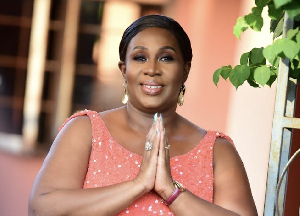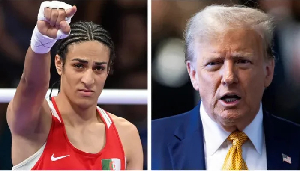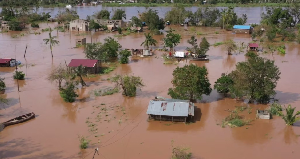Opinions of Wednesday, 14 December 2011
Columnist: Abrefah, Kwame Attakora
The Case of Koku Anyidoho’s Sense of Invincibility
Power, and Self-Deception-The Case of Koku Anyidoho’s Sense of Invincibility and President Mills’s Abysmal Leadership.
The renowned American psychologist Abraham Maslow is often quoted as saying, “If the only tool we have is a hammer, every problem looks like a nail.” In the context of the warfare paradigm that has engulfed our politics since 2008 this analogy implies that although there are many options available to the government, such as, dialogue and meaningful engagement with all political parties, civil societies and religious bodies to promote national unity, security, and decorum in our political discourse, the government has rather chosen an approach it is most comfortable and familiar with- the use of threats and intimidation of its opponents regardless of the circumstances and its negative impact on peace and stability of the country.
In a recent interview, on a radio station in London, Mr. Koku Anyidoho threatened Nana Akufo-Addo to “dare make the wrong move” and he would show him “where power” lies. In a subsequent interview, on a radio station in Ghana, Mr. Anyidoho stated he was speaking on behalf of the President of the republic and reiterated his threats to Ghana’s largest opposition party and its flag bearer, Nana Akuffo Addo. In essence, Mr. Anyidoho effectively announced to the whole world how the government would manage “conflicts” in the run up to the 2012 general election. Conflict here does not simply mean political violence but defined as a contest between opposing ideas, values, worldviews and aspirations. Thus, conflict between the two major political parties in Ghana is inevitable. Sadly, Mr. Anyidoho’s announcement has raised concerns among investors, international observers, and all concerned Ghanaians about the President’s leadership and his preferred approach to resolving conflicts between competing values, ideals and aspirations in the country.
The main purpose of this article is to propose to the government an alternative model of conflict resolution based on responsible governance and elimination of the warfare mentality to enhance peace, stability and prosperity for all Ghanaians. The proposed approach is quite different from the government’s strategy of threats and intimidation as announced by Mr. Anyidoho. It is simple, positive, and proving effective at resolving conflict in many organizations and in advanced industrialized democracies.
Before solutions can be proposed, it is important to define power and critically look at the hidden assumptions inherent in Mr. Anyidoho’s threats. Given the context in which Mr. Anyidoho made his threats, one can conclusively argue that the Presidential Communication guru was serving notice to Ghanaians and the world that the government is determined to use the “power” of the state to deal with its political opponents. The question then becomes on what basis can the government use state power to deal with its opponents? Based on our democratic dispensation, the government derives its power from the mandate it received from citizens to exercise power on their behalf in the 2008 elections. True, every government has the right to use the power of the state to defend its citizens, territorial integrity and to maintain law and order. But what happens when the government threatens to use its power and state institutions to deal with its political opponents? The answer lies in our conception of political power, how it is exercised and its limitations. Political power is “delegated” by citizens for a given period of time to a government as a means to direct state activities, including managing public resources and implementing policies, in the interest of the common good. In light of this, when power is exercised contrary to its intended purpose and used arbitrary, abuse of power and injustice becomes rampant.
In a pluralist and democratic society such as ours, state power is diffused and its legitimacy depends on the willingness of citizens, whose alliances are continuously shifting between diverse authorities, to support the government. The analysis thus far shows that the power of government is not absolute and citizen’s support is not guaranteed especially when it comes to using the state’s power against the citizenry. Frankly, the scale of resources required to engage in a security operation to deal with the largest opposition party in Ghana and a respected leader such as Nana Akuffo Addo is beyond imagination. Thus, one is left to wonder whether Mr. Anyidoho was making an empty threat or is naïve about the limits of his power. Either way, it is clear that Mr. Anyidoho seems to have a sense of invincibility and does not fully understand how delicate political power is.
I am sure in our political discourse where decorum has been lacking and even-temperedness has been absent, even from the upper echelons of power, some people may still support Mr. Anyidoho and even push hard to create chaos as a pretext to mount political assault on Nana Akuffo Addo. What is important to note is that Nana Akuffo Addo is not an ordinary person in Ghana. Like President Mills, Nana Akuffo Addo is endowed with symbolic meanings, and represents the ideals of a significant number of Ghanaians and many people across the world. Therefore to attack Nana Akuffo Addo is to attack their personal values, aspirations and goals, which can easily lead to serious conflict in the country.
When Professor Mills was sworn in as the president of the country after the closest election ever in the history of Africa, the goodwill from the international community was swift. President Barack Obama visited Ghana in his first year as the president of the USA. Ghana after all has beaten all odds and defied the doomsayers about the cycle of electoral violence in Africa. Nana Akuffo Addo has shown statesmanship and conceded defeat. He also graced President Mills swearing in ceremony. Ghana for once was unified and people of all political affiliations celebrated together the monumental democratic achievement. In view of this, the people expected a mode of governance that was vastly different from the previous military and semi-military regimes of P(NDC) eras. Instead, everything was immediately shamelessly politicized, and our democratically elected leaders failed in the performance of their basic functions as government -ensuring law and order, and protecting all citizens regardless of their political affiliation—leaving the people bewildered and disenchanted. Ghana may have escaped the African curse at the ballot, but its ambition to become an inclusive society with equal opportunities for all regardless of gender, political affiliation, tribe and religion is still a distant dream. Thus, the legitimate, rational, political, economic and social aspirations of the people when continuously faced with intimidation, threats, violence and contempt has given rise to conflict, which if not managed well will escalate. Yet there is complete lack of leadership by the president to seriously study the root causes of the tension in the country and formulate rational, inclusive and tangible national strategies to resolve the conflict and promote national unity.
Therein lies this writer’s concerns with Mr. Anyidoho’s reckless pronouncements and the president’s lack of leadership on such a sensitive national security issue. It is in this context that this writer challenges the president to step up to leadership and lead. The kind of leadership Ghana needs from the president is not political leadership whereby he and his inner circle perceives the world as a place of conflict and therefore emphasizes the need to build a power base through a network of radical allies to confront their opponents both within and outside the ruling party. Ghana needs a situational leader who is able to opt for and use a mix of leadership styles most appropriate for a particular situation. In the context of conflict resolution, there is a need for a government that is focused on positive outcomes and will work towards acquiring skills related to effective conflict resolution. We need a leader who is able to use facts, logic and analysis to comprehensively address a problem.
In view of this, this writer proposes the following strategies to help the government to proactively resolve and manage political conflicts to ensure peace and stability in our beloved country: • The government must promote a pluralist, democratic country, where the basic rights and freedom of all are respected regardless of their political affiliation. • To recognize compromise as a strength and not weakness and seek the kind of compromise that would satisfy the aspirations of diverse constituencies in the country • Seek and nurture positive working relationships with former presidents Kuffor and Rawlings and empower them to actively participate in peace building activities in the country. • Meet periodically with leaders of all political parties, religious organizations, and civil societies to monitor and discuss creative ways to resolve conflicts in the country • Provide leadership communication training to the communication team to enhance their self-awareness about forms of conflict and conflict communication skills • Set up national structures such as a peace council and resource them to effectively to play a role to proactively work on conflict prevention and resolution. • Last but not the least, take a stand against public officials and hold them accountable for any irresponsible conduct and pronouncements. Actions speak louder than words. The proposed strategies are a common sense approach to conflict resolution. They are premised on the assumption that when the legitimate aspirations of the people are addressed objectively and honestly, conflict is prevented and peace and stability reign supreme.
“Self-deception obscures the truth about ourselves, corrupts our view of others and circumstances, and inhibits our ability to make wise and helpful decisions. To the extent that we are self-deceived, both our happiness and leadership are undermined”.
The Arbenger Institute
By: Kwame Attakora Abrefah, Edmonton Canada














